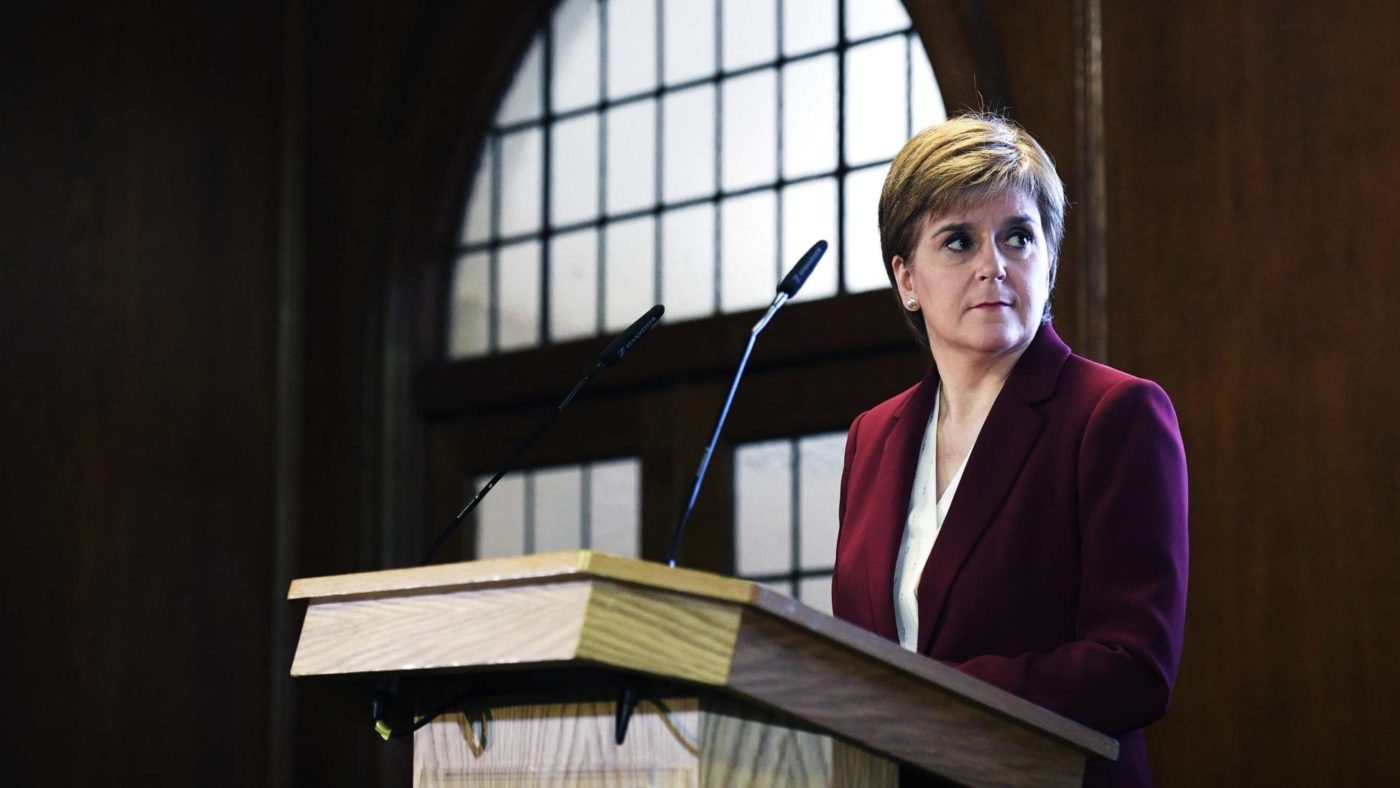Whatever you think of the SNP’s brand of Scottish nationalism, the party is not short on talent.
Take the imminent battle to be the party’s candidate at next year’s Scottish Parliament elections in the constituency of Edinburgh Central. It’s not even a nationalist seat and is currently held by former Scottish Conservative leader Ruth Davidson. But in a Scotland that is dominated at every level by the SNP, it is seen as a likely gain for the party in May 2021. So whoever is chosen by local members as the candidate will – so the party believes – become an MSP.
It’s hard to imagine any other party in Scotland being able to present two candidates with such impressive CVs. Angus Robertson, the former MP for Moray, was for years the SNP’s leader at Westminster, and proved himself time and again an effective performer in the Commons (so much so that his successor, Ian Blackford, has suffered by comparison). Robertson is an intensely focused individual who has masterminded many of his party’s eye-catching and successful electoral strategies in the last 15 years. He is also liked by the media as well as by many of his political opponents.
Facing off against him is Joanna Cherry MP, the QC who rose to national prominence by leading the successful court battle against Boris Johnson’s prorogation of Parliament last year. Like Robertson, she is a sharp and accomplished parliamentary performer and is popular with the SNP’s grassroots.
And by July, one of them will be the official SNP candidate for Edinburgh Central. But instead of welcoming the contest as an example of the kind of talent on which the party can draw, the looming contest is making senior heads in the party very nervous.
This all comes at a time when a number of external events have combined to make this one of the most nerve-racking periods in decades. Earlier this week, one Mr Stuart Campbell, who writes the nationalist blog Wings Over Scotland, launched a new Twitter account for his nascent rival nationalist party. The account was swiftly suspended for reasons best known to Twitter, but Campbell isn’t going anywhere soon. An ally of former First Minister Alex Salmond, Campbell shares Salmond’s reported disappointment with Nicola Sturgeon and her apparent caution when it comes to the SNP’s ambitions to hold a second independence referendum. Campbell has said he will decide on whether to stand candidates at the Holyrood elections nearer the time. If he does, it could represent the first major splitting of the nationalist vote this century.
Meanwhile, Salmond himself will appear in court next week, charged with serious sexual assault and attempted rape, all of which he vehemently denies. The party’s enemies hope that however the trial ends, it will do irreparable damage to Sturgeon, a long-time protégée of Salmond’s, and perhaps even result in her resignation.
All of this is happening at a difficult enough time for Sturgeon, who came under unexpected fire from some of her own activists after Boris Johnson withheld the UK government’s authorisation for her much-desired referendum. Her response to Johnson’s veto – to call for more patience from her troops – went down badly with some of her more impatient members.
Which brings us back to that contest in Edinburgh Central: Robertson is an ally of Sturgeon’s and advocates her more cautious approach to achieving independence by legal means. Cherry, though not an advocate of an illegal referendum along the lines of Catalonia’s 2017 vote, nevertheless would prefer the Scottish Government to test such a project in court and challenge the UK government to oppose it. Awkwardly, she is also a friend and ally of Salmond’s, meaning that whoever emerges as the party’s candidate in the constituency, it will be seen as a proxy victory (and a defeat) for either Sturgeon or Salmond.
Timing is everything. If Sturgeon were, through choice or force of circumstances, to resign at any point this year, neither Robertson nor Cherry would be likely to succeed her as First Minister since neither is yet an MSP. Technically, the party rules could allow either of them to stand for the vacancy, as Salmond did in 2004 when he was an MP but not (yet) an MSP. But the party was in opposition then, and times have changed. The eventual winner would be expected to lead the Scottish Government from inside the chamber in Edinburgh, not from Westminster or (in Robertson’s case) from his home study.
Before a few weeks ago, Sturgeon’s most likely successor was her then finance minister, Derek Mackay. But he is no longer a minister and is technically deprived of the party whip as a result of his sending hundreds of inappropriate messages to a 16-year-old schoolboy. So one calculation is that Sturgeon’s decision as to whether to go this year or hang on until after the 2021 elections will depend on who emerges as the victor in Edinburgh Central. If it’s Cherry, the first Minister might prefer to resign sooner than later in order to prevent Cherry’s succession.
Even to have this conversation seems absurd, given that Sturgeon’s electoral record is second to none. She has won three overwhelming victories at Westminster level and one in the Scottish Parliament. Polls suggest she is unlikely to lose next year’s contest, a prediction reinforced by the unimpressive state of Scotland’s opposition parties. Nevertheless, events being what they are, talk is turning more and more to Sturgeon’s future. Because she will go at some point. The only question is when and in what circumstances.
Robertson and Cherry are preparing for the fight of their lives in Edinburgh, and neither of them is doing so in order to be mere ministers in the next Scottish administration.
Click here to subscribe to our daily briefing – the best pieces from CapX and across the web.
CapX depends on the generosity of its readers. If you value what we do, please consider making a donation.


